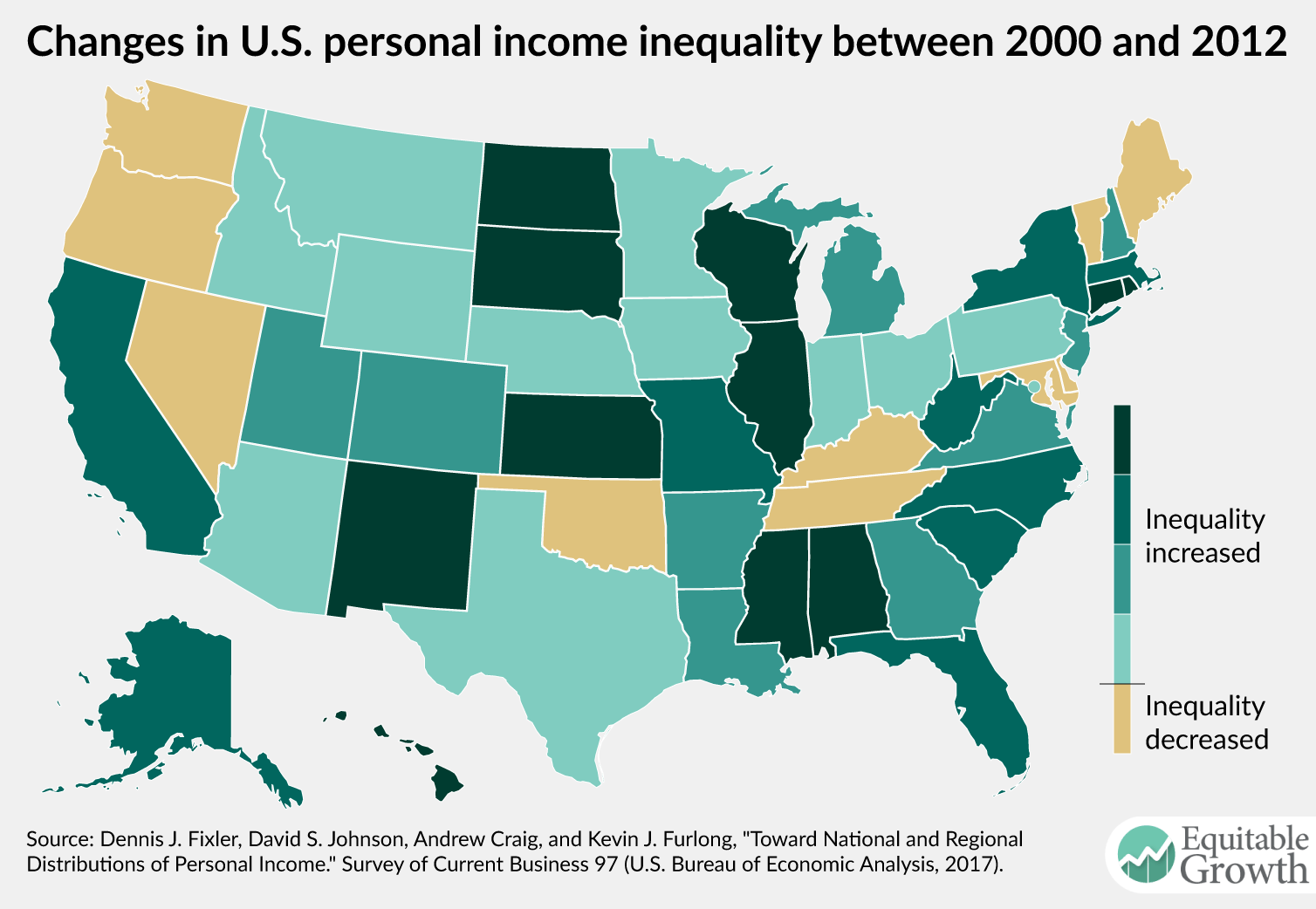Weekend reading: “Looking to Alaska” edition
This is a weekly post we publish on Fridays with links to articles that touch on economic inequality and growth. The first section is a round-up of what Equitable Growth published this week and the second is the work we’re highlighting from elsewhere. We won’t be the first to share these articles, but we hope by taking a look back at the whole week, we can put them in context.
Equitable Growth round-up
The possibility of an implementing a universal basic income in the United States has become a trendy idea in recent years with experiments abroad gaining attention. But Heather Boushey notes that the United States has experience with the idea: in Alaska.
With fewer new firms being created in the United States, economists might expect that the difference in productivity across firms would decline as less productive firms close and more productive ones expand. But that’s not what’s happening.
Equitable Growth released a new working paper this week from University of Massachusetts Amherst economist Arindrajit Dube. The paper looks at how changes in the minimum wage change the distribution of family incomes.
Austin Clemens writes about a new data series that tries to solve a problem with almost all measures of income inequality—they don’t fully capture all the income in the U.S. economy.
Links from around the web
David Weil, an economist at Boston University, has documented the rise of the “fissured workplace” as companies outsource more and more jobs. Based on his prior experience as the Administrator of the U.S. Department of Labor’s Wage and Hour Division, Weil writes about how policy can take this trend. [hbr]
“The U.S. economy’s ability to keep finding new ways to grow, and keep spawning world-beating corporations that lead that growth, is a remarkable thing,” writes Justin Fox at Bloomberg View. “But it clearly hasn’t been enough to keep living standards from declining for large swaths of the population.” Fox looks at how the United States is getting richer and sicker. [bloomberg view]
Low-wage workers have significantly increased their working hours since the late 1970s. But that increase hasn’t been felt equally across all those workers. Gillian B. White reports on a new study that show hours for low-wage black workers have increased much more. [the atlantic]
The Net International Investment Position of the United States—the difference between the value of U.S. financial assets that foreigners own and the value of foreign financial assets that Americans own—is a deficit of about 45 percent of GDP. Joseph E. Gagnon shows how the NIIP is projected to grow and how the adjustments after such an increase could be severe. [piie]
U.S. cities seem to have become the center of all economic activity in the United States as economic activity consolidates in urban areas. But has that actually happened? Xenocrypt isn’t so sure. [medium]
Friday figure

Figure from “The once and future measurement of economic inequality in the United States” by Austin Clemens
